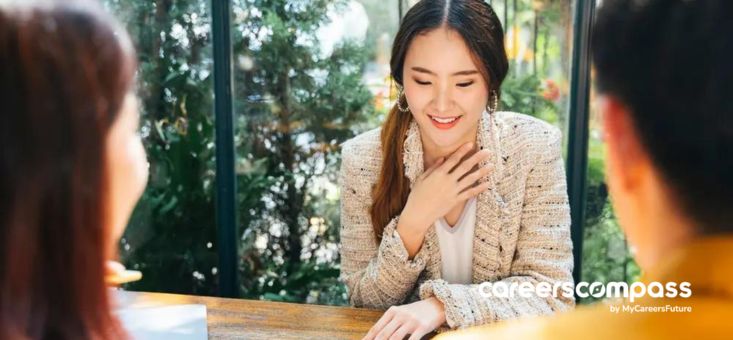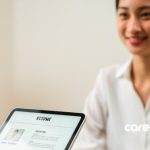For any jobseeker, it comes naturally to follow up on applications — you want to know if you made any progress. An email reply that confirms your interview date is a sign of victory. A thank you email after each job interview is important.
A follow-up email sometime after the interview is also a practice, be it a face-to-face or video interview — you need to think whether you should wait any longer, try elsewhere or accept an offer from another company.
Between the hustle to secure an interview and following up on one, what is often overlooked is the thank you email to the interviewees.
If you think that is insignificant and unnecessary to the job process, you are wrong. “The job interview doesn’t end when you walk out the door,” says Amanda Augustine, a career expert with Talent Inc. “It affords jobseekers a unique opportunity to build a meaningful relationship with the interviewer, and help keep their candidacy top-of-mind.”

Simply put, you should send a thank you email after the interview because it:
- Demonstrates professionalism and business etiquette
- Keeps you relevant among the many candidates being interviewed for the same role
- Shows your proactivity and eagerness to take up the role
Most hiring managers find that a thank you email after an interview aids in their hiring decisions too. Moreover, as Amanda notes, one in five are quick to dismiss a candidate when they did not receive one. While sending one doesn’t necessarily indicate your capability for the role, it reflects professional courtesy, which interviewers pay attention to.
Despite its importance, more than half of candidates do not send that follow-up email.
How soon do you send a thank you email after an interview?
You must always follow up with an email within 24 hours after the interview. That said, it is advised not to rush it. Your thank you email needs to be well thought out.
You don’t want to quickly put together a message without understanding what goes into a good one. This could be the last leg of your application process, so you’d want to think about what exactly you want to cover and have it well-written. We run through the steps below:
What to say in a thank you note after an interview?
A thank you email after the interview is essential to the success of your application, but what is equally important is knowing how to craft one. We take you through the steps.
1. Email subject line
This is the preview text that appears in your interviewer’s inbox before they open your message. Make it attention-grabbing but simple, sincere and professional.
2. Personal salutations
Open your email with a personalized greeting that addresses your interviewer’s name. This means you must send separate emails to each interviewer if you have a panel or group interview. If you don’t have the email addresses of your interviewers, you may request from the HR manager you’ve been liaising with and state your reasons. Be sure to catch the names of those on the panel during the interview!
If you’re unable to email your interviewers directly, such as due to confidentiality reasons, feel free to drop them to the HR manager directly, requesting them to be forwarded to the respective recipients.
Read More: How to Effectively Follow Up on Your Job Applications
3. Introduction: Express your appreciation and reinstate your interest
Start by expressing your appreciation for being interviewed and what you enjoyed learning about the role. This could be anything from the department’s goals to what the team plans to do in the next few months. Following this, reiterate your interest and eagerness to join.
4. Body: Bring up a point discussed during the interview
Identify a relevant and interesting point discussed in the role and explain why. Not only does this make the email personalized but it also gives you another chance to show the value of your skills by relating them to your current or previous position.
Find your next job on MyCareersFuture. We have over 100,000 job opportunities daily for you.
5. End: Offer to provide more information if needed and establish a response deadline
If you promised your interviewee a link to extra work samples from your portfolio following the interview, this is the time to do so. You can also offer to provide additional information they need to aid in the decision-making process. Then, politely end off by saying that you look forward to hearing from them within the timeframe your interviewer established with you.
6. Close
Thank them again and sign off.
What if you’re not interested in the role?
If you realize that this is not the job for you due to expertise or interest level, for instance, you could also let your interviewer know and share your reasons. This way, you acknowledge their time for the interview while being truthful about what you feel.
In the email, you may then discuss the type of role you’re after and why. Following that, offer to keep in touch should such a role come by in the future.
Sample thank you email sample/template
Always remember to check your email thoroughly as you would when proofreading your resume.
Here’s a sample on how to write a good thank you email:
Subject line: Thank You, Jennifer!
Dear [Interviewer’s name],
Thank you for taking the time to meet and speak with me about the position of [role] at [company name]. It was a pleasure to learn more about [a role/department-specific goal or approach shared with you]. Our conversation has made me more eager to join your team.
What interested me, in particular, was [something specifically discussed during the interview]. I thought about what you shared on [a challenge, opportunity or an ongoing strategy your interviewer mentioned]. In my current/previous role as a [position], my team and I tackled something similar by [add a quick explanation that relates to what was discussed].
I believe my experience can bring about a similar success when I join your team as a [position you are applying for].
As promised, I have attached [documents/information your interviewers requested during the interview] for your perusal. Please feel free to contact me should you need more information.
Looking forward to hearing from you in [the specific duration your interviewers established during the interview].
Thank you once again for your time!
Yours sincerely,
[Your name]















